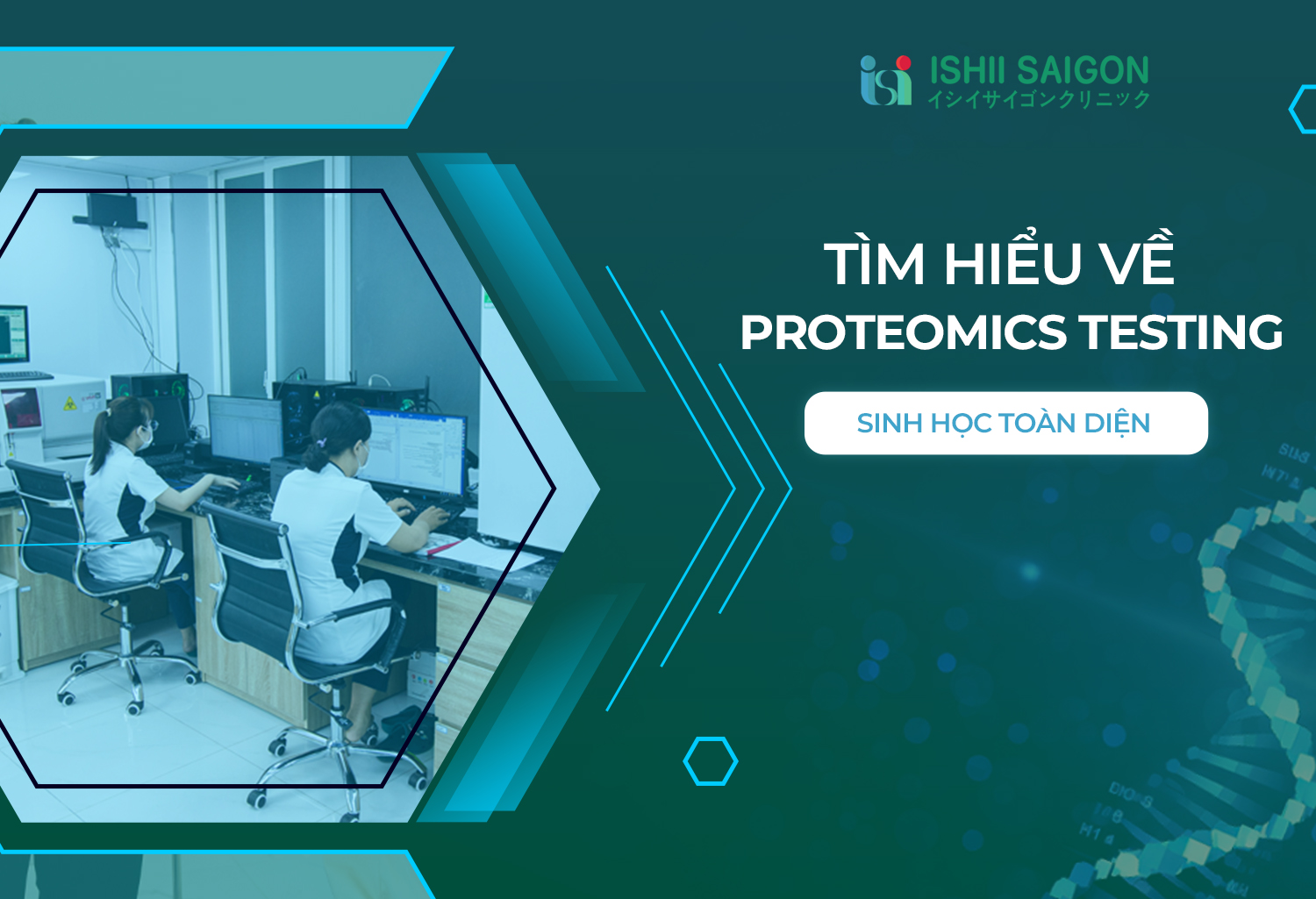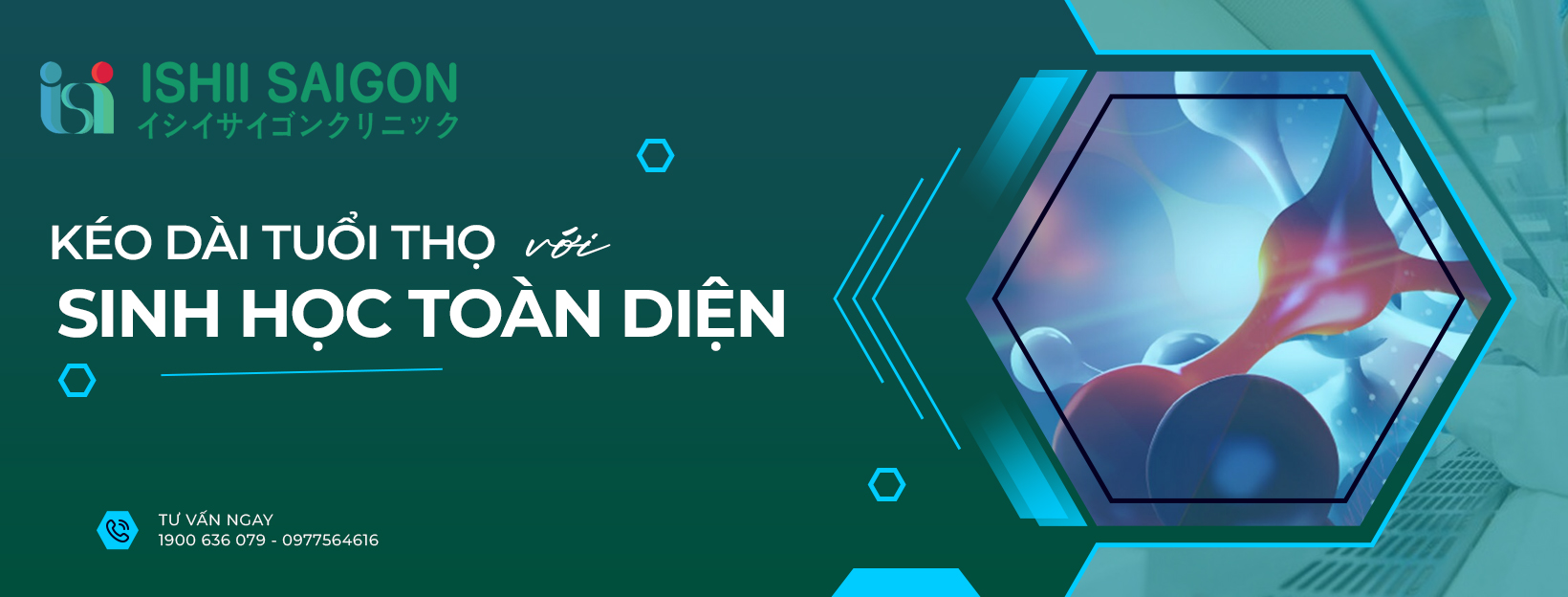
In modern medicine, DNA or genetic analysis is no longer accurate enough to screen for the risks of human diseases. The primary reason is that DNA does not fully reflect the complex system of the body nor the complexity of dangerous diseases such as cancer, cardiovascular diseases, and chronic liver and kidney diseases comprehensively. Therefore, the holistic biological examination systems Proteomics Testing and MultiOmics (multicellular) have been developed to address the shortcomings of DNA analysis and genetic code sequencing.
The concept of holistic biological examination - MultiOmics and Proteomics Testing.

Holistic biology is a concept that has been introduced in recent years to refer to the study of the human body through various methods. In this process, data samples collected from different sources such as blood, urine, cells, and other tissues are analyzed simultaneously to provide detailed and comprehensive results. Proteomics Testing is one of the main methods of Holistic biology. It focuses on studying and evaluating the proteins present in the body. With the development of technology and science, Proteomics Testing has brought significant benefits to the healthcare sector and is one of the optimal solutions for comprehensive health assessment in humans.
Proteomics Testing là một trong những phương pháp chính của sinh học toàn diện, nó tập trung vào việc nghiên cứu và đánh giá các protein có trong cơ thể. Với sự phát triển của công nghệ và khoa học, Proteomics Testing đã đem lại những lợi ích rất lớn cho ngành y tế và là một trong những giải pháp tối ưu cho việc đánh giá sức khỏe toàn diện của con người.
Why is it necessary to study the body through holistic biology nowadays

In the process of human development, the spread of diseases is becoming increasingly rapid and complex. For chronic conditions, symptoms often aren't clearly expressed and can be difficult to detect early on. Through holistic biological research, we can assess and predict health risks in the future, enabling timely prevention and treatment.
Furthermore, by combining multiple methods and analyzing diverse data, Proteomic Testing as part of holistic biology focuses on protein analysis to provide detailed and comprehensive insights into the body's health status. This allows healthcare experts to gain a more accurate and comprehensive overview, offering advice to help people maintain good health and avoid dangerous diseases.
Building on the comprehensive approach of Proteomic Testing, doctors have further developed additional analytical factors, collectively known as Multi Omic (multicellular), to enhance the accuracy of disease analysis, including
| Genomics: | Comprehensive research on genetic information (genes) |
|---|---|
| Epigenomics: | Comprehensive research and exploration of the living microbial world within the human body. |
| Transcriptomics | Comprehensive study of gene expression at the RNA (transcript) level. |
| Proteomics | Comprehensive study of protein expression. |
| Metabolomics | Comprehensive research on biochemical substances or metabolites. |
| Microbiomics | Comprehensive research and exploration of the living microbial world within the human body. |
Ishii Saigon Clinic - a pioneer in the field of holistic biological assessment through Proteomics Testing.
Ishii Saigon Clinic is a pioneering provider of holistic biological assessment services, including Proteomics Testing, in Vietnam. With over 20 years of experience in healthcare, doctors at Ishii Clinic have integrated advanced holistic biological technology from Japan into their practice to ensure accurate and effective diagnosis and treatment.
By analyzing over 7,000 types of proteins in your blood, Proteomics Testing provides profound insights into future health risks and current physical conditions. This enables doctors to offer tailored advice and treatment methods, allowing patients to feel confident and assured about their health.

Assessing risks for 4 silent diseases - extending lifespan for patients
Through Proteomics Testing, Ishii Saigon Clinic can assess the risks for 4 silent diseases: lung cancer, cardiovascular disease, dementia, and chronic kidney disease. This allows patients to be early warned about these diseases and take preventive or timely treatment measures to minimize the risk of developing them.
The risk of lung cancer in the next 5 years.
As one of the most prevalent cancers in Vietnam, lung cancer has inflicted significant losses and suffering on the community. However, through Proteomics Testing, patients can understand their future risk of developing the disease based on specific protein markers and indicators.
By combining results from Proteomics Testing with other diagnostic methods, doctors at Ishii Saigon Clinic can provide specific advice and preventive measures to minimize the risk of developing lung cancer in the next 5 years. This helps patients feel confident and assured about their health, ensuring timely diagnosis and treatment if necessary.
The risk of developing cardiovascular disease in the next 4 years.
Heart disease is one of the leading causes of death in Vietnam and worldwide. With advancements in technology, Proteomics Testing can help patients assess their risk of developing cardiovascular disease in the next 4 years, enabling preventive measures or timely treatment.
Through the analysis of various types of proteins in the blood, Proteomics Testing provides deep and accurate insights into health indicators related to heart disease. Doctors at Ishii Saigon Clinic can offer specific advice on diet and lifestyle to reduce the risk of cardiovascular disease and maintain good health.
The risk of developing dementia in the next 5 and 20 years
Memory loss is a common health issue among the elderly. However, through Proteomics Testing, we can assess and predict the risk of developing dementia not only in the near future but also over the next 20 years.
Results from Proteomics Testing provide detailed and accurate information about health indicators related to dementia. This helps doctors offer advice on maintaining psychological health and behavior to minimize the risk of developing dementia in the future.
The risk of developing chronic kidney disease in the next 4 years
Chronic kidney disease is a serious condition that can lead to death if not detected and treated promptly. However, through Proteomics Testing, we can assess and predict the risk of developing chronic kidney disease in the future, enabling preventive measures or early treatment.
Analyzing health indicators related to chronic kidney disease via Proteomics Testing provides doctors with a comprehensive and accurate understanding of the patient's health status. This facilitates timely and effective diagnosis and treatment, thereby minimizing the risk of developing chronic kidney disease in the future.
SCHEDULE AN APPOINTMENT WITH THE DOCTOR






